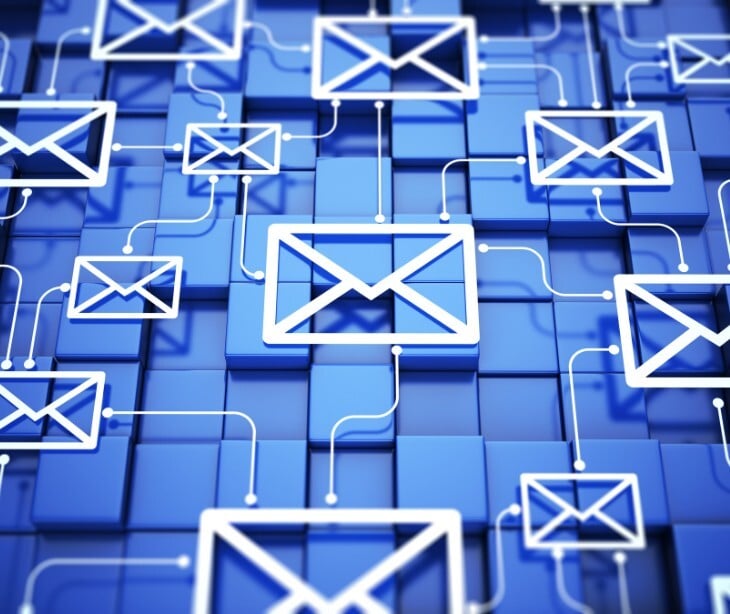
Hackers use brand impersonation to trick individuals into revealing sensitive information or installing malware by posing as trusted brands. Healthcare organizations are at a higher risk due to overworked staff, changing IT priorities, and easily impersonated partners. Hospitals and health systems must proactively protect themselves from these attacks.
Recognizing brand impersonation attacks
Brand impersonation attacks are a form of social engineering, where hackers exploit human trust to gain unauthorized access. These attacks often involve emails that appear to be from the victim's organization, such as the help desk, prompting them to take action.
For example, an attacker may send an email claiming the recipient's password has expired and provide a malicious URL disguised as a login page. When the recipient enters their login credentials, the attacker captures their password.
Other common brand impersonation tactics include hackers posing as executives to request money transfers or sensitive information, or impersonating business partners to obtain confidential data. These attacks are challenging to detect as they utilize scraped logos and domain names similar to the brand's and even display names of real individuals associated with the brand.
Read more: What is social engineering and why healthcare is vulnerable
Why healthcare is particularly vulnerable
The healthcare industry faces unique challenges when it comes to brand impersonation attacks. Medical records, which contain valuable personal information, are highly sought after by hackers.
Healthcare organizations often operate with understaffed IT teams, leading to potential security gaps due to the focus on critical systems. Adopting new technologies like telehealth and wearable devices has also expanded the attack surface for healthcare organizations.
Additionally, the complex supply chain in healthcare introduces additional vulnerabilities. Third-party vendors interact with various individuals within an organization, making it easier for attackers to exploit slight changes in domain names or corporate logos. The heavy reliance on email communication increases the risk of mistakes which can be manipulated by attackers.
Protecting against brand impersonation
To safeguard against brand impersonation attacks, healthcare organizations need to implement a combination of people, process, and technology-based solutions.
People: Security awareness training
One of the most effective ways to combat brand impersonation attacks is through security awareness training for all healthcare workers. Given the high-stress nature of their work, training modules should be concise, engaging, and tailored to address the specific threats they face in their day-to-day activities.
Process: Administrative and technical safeguards
Implementing administrative and technical safeguards can significantly reduce the risk of falling victim to brand impersonation attacks.
For instance, healthcare organizations can establish policies that require sensitive information to be shared through encrypted email services like Paubox. These measures make it harder for data to be intercepted or accessed by unauthorized individuals.
Technology: Email security and brand exploitation protection
One of the most critical technological defenses against brand impersonation attacks is deploying best-in-class email security solutions. Advanced machine learning algorithms can identify subtle indicators of brand impersonation in emails, enhancing threat detection capabilities.
Brand exploitation protection tools can also block malicious domains, identify cloned websites, and proactively scan for impersonation and fraud attempts outside the organization's perimeter.
Read also: What are administrative, physical, and technical safeguards?
In the news
The Zeon threat group targets the healthcare sector through brand impersonation, pretending to be legitimate software providers. They sent phishing attacks to thousands of email addresses, tricking healthcare employees into installing remote access tools and giving attackers control over their computers without using malicious links or attachments. Zeon exploits Microsoft Exchange vulnerabilities and uses well-known brands to avoid spam filters. Health-ISAC's Errol Weiss stresses the need for better awareness and training, especially for temporary workers, to counter these attacks. Health-ISAC recommends updating phishing defenses and using network investigation tools to detect unusual activity and protect sensitive data.
FAQs
What is brand impersonation and how does it relate to healthcare security?
Brand impersonation involves cybercriminals pretending to be a legitimate organization to deceive individuals into providing sensitive information, often through phishing emails or fake websites. In healthcare, brand impersonation can lead to unauthorized access to protected health information (PHI), financial fraud, and damage to the organization’s reputation.
Why is brand impersonation a concern for HIPAA compliance in healthcare settings?
Brand impersonation is a concern because it exploits trust in legitimate healthcare organizations to gain unauthorized access to PHI. This can result in data breaches, HIPAA violations, financial penalties, and harm to the organization's reputation for not adequately protecting patient information.
What are the potential risks associated with brand impersonation under HIPAA?
- Data breaches: Unauthorized access to patient records and sensitive medical data through phishing or fake websites.
- Financial fraud: Trick individuals into providing financial information or making payments to fraudulent accounts.
- Service disruption: Interruptions in healthcare services due to compromised systems or fraudulent activities.
- Data corruption: Alteration or loss of healthcare information as a result of deceptive practices.
- Loss of trust: Damage to the organization’s reputation and patient trust due to the association with fraudulent activities.
Subscribe to Paubox Weekly
Every Friday we bring you the most important news from Paubox. Our aim is to make you smarter, faster.




